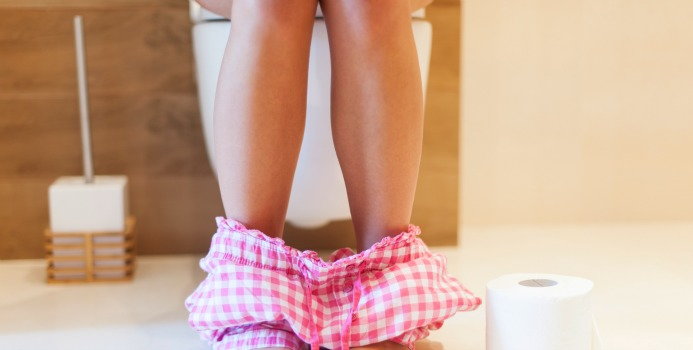Poop probably isn't something that you think about much (because, ew), but poop actually says a lot about your health. Although it sounds pretty gross, you should probably take a look in the toilet now and then to establish what is normal for you. Just eat your usual diet and then take a peek to see what your typical poop is like. This way, you can have a marker for what is normal and for what might be abnormal, which is when you would want to seek medical attention. Looking at your poop is the best way to know about your gastrointestinal health.
Once you know what's normal for you, here are a few things to look at for, and what they can mean.
Frequency
Everybody has a different schedule; so don't compare yourself to others. Most people tend to go once or twice a day, but for some, it's more or less. Knowing your own schedule lets you know when things are off if you go too much or not enough.
Shape
Poop should be large and S-shaped. If it's really small and pebbly, that could mean trouble. Some digestive disorders can cause holes to appear in your stool and that's no good either. Your poop should be sizeable and soft but not mushy or liquidy, that indicates diarrhea.
Color
The color matters too. Dark or black stools can indicate that there is blood in your poop — in which case, you should seek immediate medical attention. However, medications like Pepto Bismol and iron supplements can also make your poop turn black—which is why it's important to know what you're eating so that you know when to worry, and when it's just something you ate.
Greenish poop means that your poop probably left your system a little early.
Healthy poop is a dark brown because it gets mixed with bile from your liver on the way out.
How to Improve Your Poop
- Drink plenty of water: not getting enough liquid can cause constipation—or make things hard when they should be soft and easy
- Get your fiber: Fiber is key to regularity. High protein diets lack fiber and often lead to constipation
- Exercise: when you move, you get moving.
- Other things to keep in mind:
- Probiotics add healthy bacteria to your digestive tract, ensuring a better stool
- Avoid caffeine because it can irritate the bowel
- Not being stressed: stress can lead to pooping problems
- Squat, don't sit: some experts believe that sitting puts an unnecessary strain on the body when pushing and squatting can help things come out a little easier.
Pooping may not be all that sexy, but it's an important part of staying healthy and can help you figure out if you need to regulate your diet a little better or if a doctor's visit is in order.



